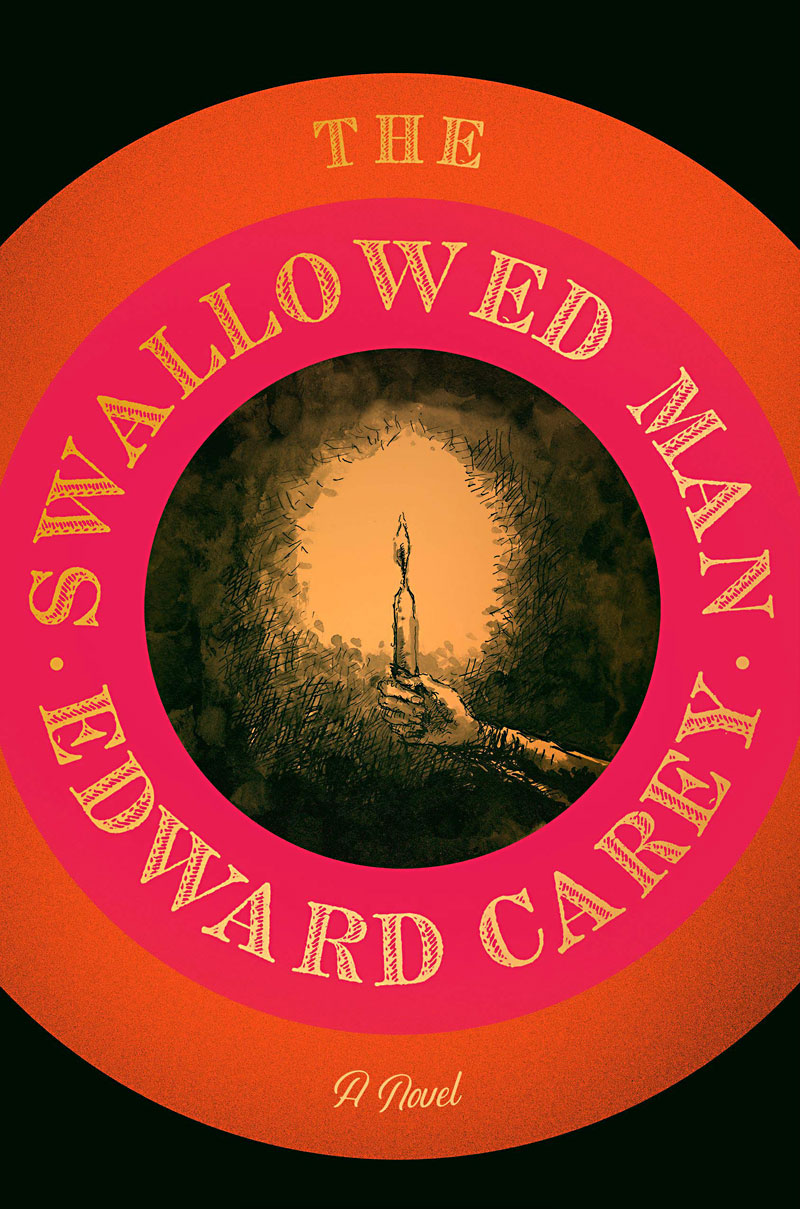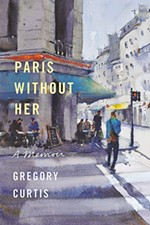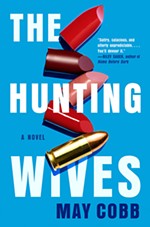Book Review: The Swallowed Man by Edward Carey
The Austin author's rich and strange take on Pinocchio has Geppetto tell the story from the belly of the giant fish
Reviewed by Robert Faires, Fri., Feb. 5, 2021
If only Victor Frankenstein had read Edward Carey's latest novel after he animated that patchwork of corpses in his lab. The young doctor might have taken some lessons from it about what it means to give life – especially to something that doesn't naturally have it.
In the book's narrator, the carpenter Giuseppe – we know him as Geppetto – Victor would have recognized a kindred spirit. He, too, comes face-to-face with a thing of his own making that's suddenly alive and recoils in horror, just as Victor did with his creature. But then Dr. F would have read how, instead of rejecting his creation as an abomination that cannot be redeemed, Giuseppe takes responsibility for it, keeping it in his home, teaching it to be human, and giving it a name (Pinocchio, if you haven't guessed). And Victor would have learned that in time, the woodcarver comes not only to love this living marionette but to consider him his son.
That's how Guiseppe lays it out in The Swallowed Man, the account of his life that he pens from inside a gargantuan shark (forget Monstro the whale; that's pure Disney). The woodcarver had been at sea searching for his missing wooden boy when he became an amuse-bouche for this milelong leviathan. However, since it had a previous meal of a Danish ship lodged in its gullet, Giuseppe managed to forestall his digestion by climbing aboard the vessel and taking refuge there. He lives off the abandoned ship's provisions and passes the time by setting down his impossible story in the captain's journal.
Through this record, we come to know much about Giuseppe – aspects of his life that Carlo Collodi never even hinted at in The Adventures of Pinocchio: a family history in which he was a perpetual disappointment to his father, a handful of romantic affairs that he characterizes as merely "small intimacies," an admission of his baldness and the embarrassment it causes him ("as if I had my bare bottom on display"). We see that in the isolation of his piscatory captivity, he forms attachments to whatever is around him: the captain whose journal he's appropriated; the man's wife, Mrs. Tugthus, and a man he assumes is their son, both seen in old tintypes; a tiny crab that nests in his ankle-length beard and which he christens Olivia.
Most of this is revealed, naturally, in words – words richly descriptive and abundantly playful, as we've come to expect from Carey – but what is distinctive about The Swallowed Man is how much about Giuseppe is revealed in images, particularly in images of art Giuseppe's made: little drawings, paintings, and sculptures fashioned from objects found on a ship in the belly of a fish (oyster and mussel shells, driftwood, pottery, candle wax, hardtack, a twig, a fork, a tooth of the great beast). Carey's layering of these into the text serve to illustrate not simply Giuseppe's story but also his deep need to create. Outside the monster-fish, creating was his profession. Inside, it is his compulsion. He is driven to make things; they are his connection to the past, to the world, to life! That's why his wooden child has become so precious to Giuseppe, why he longs for him so. His creation lives in the world, calls him "Babbo," makes him a father.
In The Swallowed Man, Carey drops that father full fathom five, where the Pinocchio fairy tale undergoes, in the words of Shakespeare, "a sea change/ Into something rich and strange." It transforms it into an odd and oddly endearing meditation on creation and its power, conveying how much the act adds to our existence and how embracing it can make the creator, even more than their unnaturally animated creation, fully human.
The Swallowed Man
by Edward CareyRiverhead, 206 pp., $26














